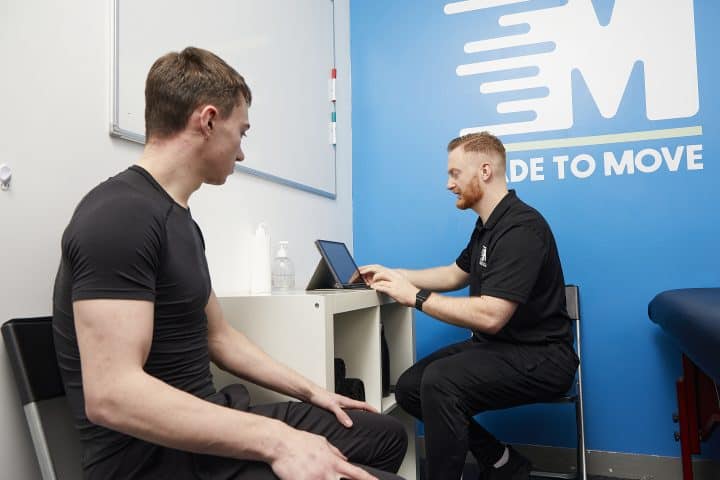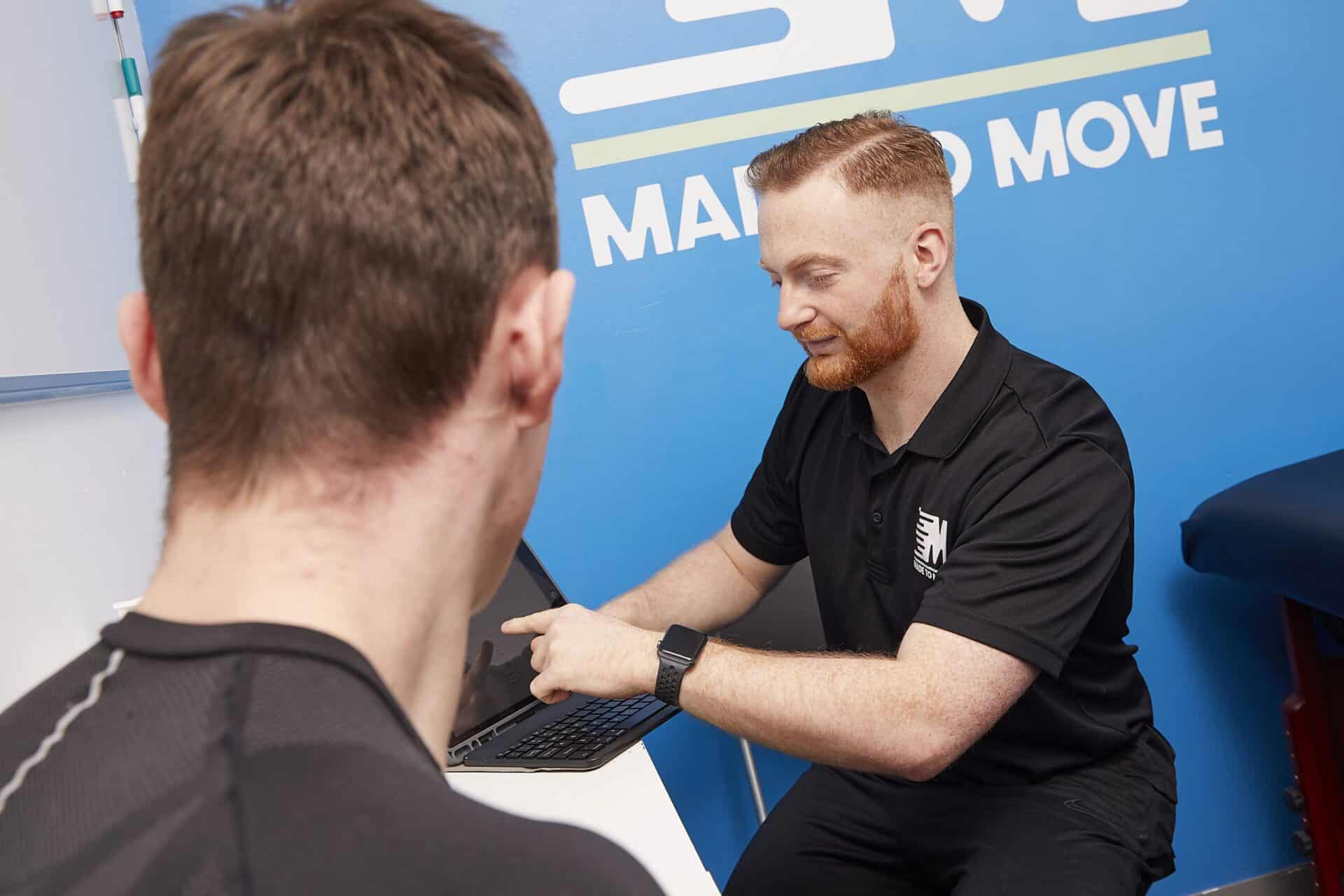Sport and exercise become a passion or a hobby for so many people, for some, it begins in childhood and never goes away and for others, it is something they come to later in life. Whether it’s a team sport or individual it can become a huge part of your life and provide social connection, positive movement, support your physical health and maintain your mental health.
That’s all brilliant and it is so important to have something in your life that provides all of those things for you, and even better when it is something that brings you enjoyment. So when injury strikes, it can feel like all of that is taken away from you and everything is out of your control in an instant.

Understandably, this can have a huge impact on your mental health and you already feel that your physical health is in question. Many people who experience sport-related injuries process it as a loss and can grieve for their health and their sport. Although many think that grief is the response to a bereavement, it is in fact a response to a loss of any kind and having an understanding of how it may affect you in response to a sporting injury may help you on your road to recovery both physically and mentally.
Grief typically comes in stages, these are:
- Denial
- Anger
- Bargaining
- Depression
- Acceptance
You may not experience them all, you may not experience them in that order, and you may visit one more than once. Your process will be unique to you, it is therefore really important to be mindful of comparison – focus on your own journey, listen to your own body and get the support that you need.
Initially, you may be in denial of your injury, depending on the extent of it and how it affects you in terms of pain and movement. Trying to ignore it and carry on in the hope that it will ‘only be a little niggle’ that will go away or denying the severity of the injury. In some cases, this can lead to the injury being exaggerated because you continued to take part in sports and exercise when what your body needed was rest. The process of denial is your psyche’s way of protecting you from reality when the situation that is real is painful emotionally.

When the realisation hits that you do have an injury and that it will affect your sport, people often experience anger. Anger can be a difficult feeling for some and feel out of character and uncomfortable. You may be angry with yourself, with the sport, with teammates – the anger isn’t usually logical but it is a normal process as you try to make sense of the reality of the situation.
Bargaining is a defence against the helplessness you may feel in response to an injury, it can work closely with anger as the thoughts it brings with it can make you feel angry. You may question events or scenarios in the lead-up to the injury, doubt the choices you made or believe there were things you could have done differently which would have reduced the injury risk. Bargaining can be a mentally draining process, however, it is really helpful in supporting you to reach a place of acceptance as it allows you to understand that despite all that your reality is in the here and now and not the past. We can’t change the past but we can take control in the here and now and we can choose to learn from our past.
Depression in the stages of grief doesn’t mean a diagnosis of clinical depression, it refers to a deep sense of sadness and low mood. Not being able to participate and perform in sports can lead to feeling a lack of purpose and leave you with more spare time which can feel difficult to fill when injured leading to a sense of boredom and frustration at the lack of choice you have at this time.
It can be helpful to consider how this can be an opportunity as opposed to a challenge and focus on how you could use this time to your advantage. Think about what is doable depending on the nature of your injury and your stage in recovery, could this be an opportunity to read more, whether that be novels, magazines or blogs? Or perhaps a time for exploring creative past times such as crocheting, drawing, painting or scrapbooking. It is ok for these to be temporary and to end when your injury allows you to get back into the sport but the injury does not mean you have to put your life on hold!
Acceptance can really assist with being able to take the time as an opportunity as opposed to a barrier, being able to accept the reality of the situation will help you to come out the other side and support a more positive outlook on loss. Being able to accept the injury and focus on the here and now through your recovery and journey back into the sport will allow you to better engage with the process and who knows what hobbies and interests you may discover along the way if you choose to optimise the downtime that a break from your sport leaves you with.
This article was made in collaboration with Billie Pursglove – Owner of Energy Psychotherapy and BACP Registered Member. You can find out more from Billie on her website HERE.

Billie Pursglove – BACP Psychodynamic counsellor.
Energy Psychotherapy is an inclusive and passionate business with mental health and well-being at its centre. Offering private counselling sessions, online courses available on demand and well-being workshops great for business and community groups.

